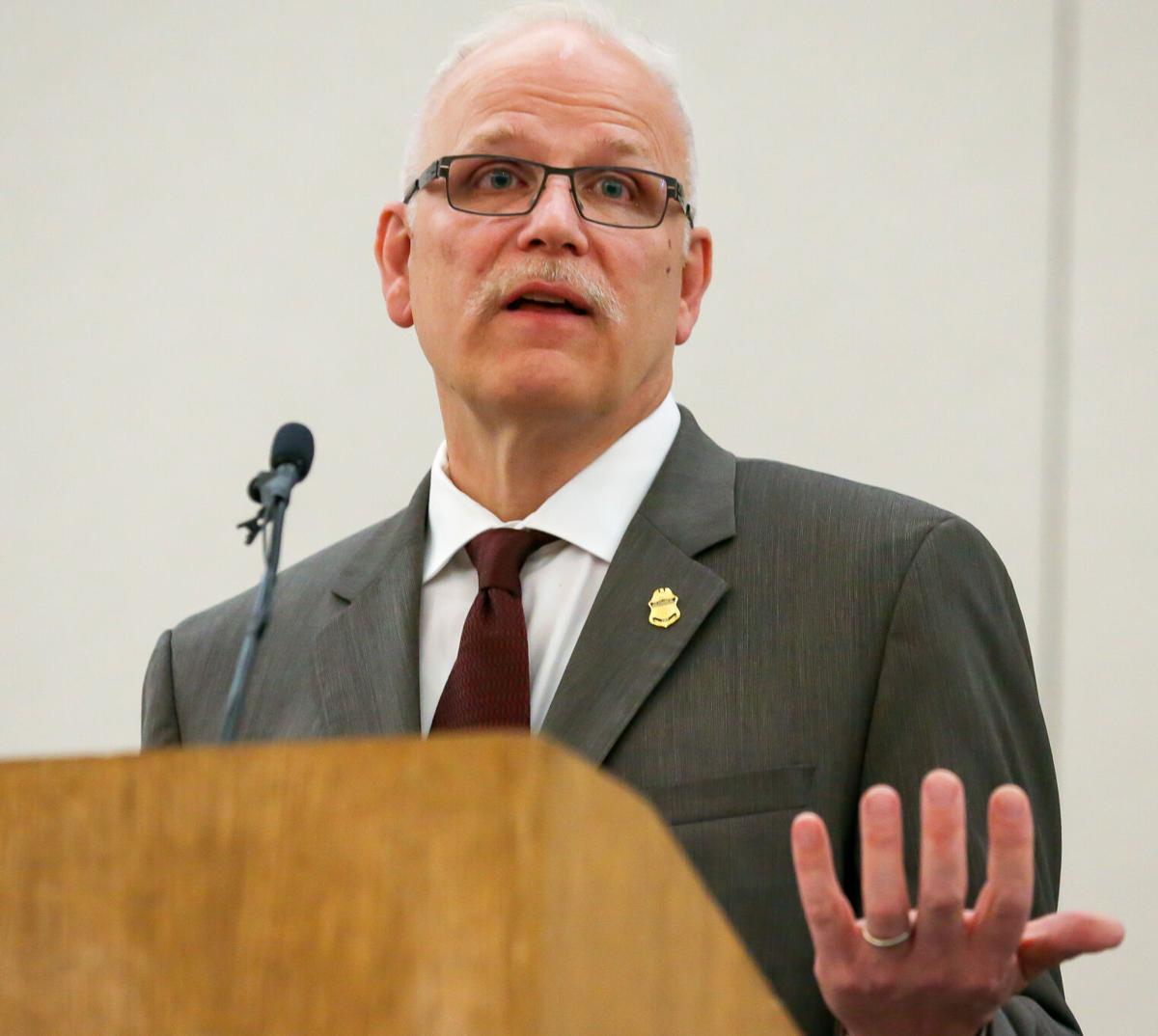Controversial Border Patrol teams that have investigated fellow agents in extreme use-of-force cases are being eliminated, according to a memo released today.
News that the teams were going to be disbanded was contained in from Customs and Border Protection Commissioner Chris Magnus that was released Friday.
CBP will eliminate all Critical Incident Teams by Oct. 1, the end of the 2022 fiscal year. And Border Patrol personnel will no longer respond to critical incidents for scene processing or evidence collection, FridayŌĆÖs memo said.
ŌĆ£Ensuring CBP has a robust and responsive critical incident response process is essential to maintaining the publicŌĆÖs trust,ŌĆØ the memo said.
People are also reading…
Earlier this year, heads of Border Patrol and the Office of Professional Responsibility released guidance that directed any use of the teams happen under the direction of the Office of Professional Responsibility commander.
The Critical Incidents program was not a complete failure, Magnus told the Star, but he understands the concerns raised by critics.
ŌĆ£Which is why weŌĆÖre taking steps to assure thereŌĆÖs the necessary oversight, that the right people are engaged in doing the work, and that everybody has consistent training,ŌĆØ Magnus said. ŌĆ£I think thatŌĆÖs going to help address those concerns.ŌĆØ
CBPŌĆÖs Office of Professional Responsibility will take over investigating ŌĆ£critical incident response.ŌĆØ That includes incidents of use-of-force by an agent, vehicular pursuits, incidents involving serious injury or death, detention standards and in-custody and other deaths. The office will be responsible for ensuring all reviews and investigations are conducted by personnel with appropriate expertise, training and oversight, the memo said.
The office will hire as many as 350 new personnel to carry out critical incident investigations. They will receive advanced training in use-of-force, sexual assault and death investigations as well as crime scene processing.
Critics of the soon-to-be-disbanded teams includes members of Congress. The teams have no authority to conduct investigations into agent conduct, lack transparency, go without a third-party investigation and have interfered with proper investigations, critics said.
In January, House and Senate committee and subcommittee chairs sent a letter to the Government Accountability Office requesting a review of the Critical Incident Teams.
And the chairs of two of these committees ŌĆö the House committees on Oversight and Reform and on Homeland Security ŌĆö opened an investigation into the teams and sent a letter to Magnus, saying that Congress didnŌĆÖt provide Border Patrol with the authority to conduct investigations of its agentsŌĆÖ misconduct nor had the CBP Commissioner publicly delegated this authority.
The letter said the committees were investigating whether the teams have interfered with criminal, civil or administrative investigations of use-of-force by Border Patrol agents in order to protect the agents from being held accountable for potentially serious misconduct.
The Southern Border Communities Coalition, a humanitarian aid group that sent a letter raising alarms about the teams to Congressional committees in October, says they are grateful for the leadership Magnus has shown on the issue. Eliminating the teams is an important first step toward justice and accountability, the group said.
ŌĆ£I think that thereŌĆÖs also many families who donŌĆÖt have closure, donŌĆÖt feel that justice has been achieved,ŌĆØ says Vicki Gaubeca, director of the coalition.
CBP should reopen cases where there is evidence of misconduct, provide documents requested by the committee about investigations and publicly explain the investigative authority of the Office of Professional Responsibility, Gaubeca says. Further, she said, former members of the agency teams should not be part of new investigations and should be charged with obstruction of justice where appropriate.
ŌĆ£The core of the issue is how do we deliver justice and closure to these families who have lost loved ones or who have experienced abuse by CBP officials,ŌĆØ she said.
Among local incidents that the Border PatrolŌĆÖs Critical Incident Teams helped probe: The death of 16-year-old Jos├® Antonio Elena Rodr├Łguez, who was shot at least 10 times through a border fence in Nogales by Border Patrol agent Lonnie Swartz in 2012; and the June 2021 , who survived being shot in the head by an agent while she sat in the back of a car.
The Nogales Police report on Garc├ŁaŌĆÖs shooting says that Border Patrol provided little information to local police who arrived on the scene. Garcia says after two days in the hospital she was transferred to the Florence Correctional Center, where she spent 22 days before being deported.
During her incarceration, no officials ever got a statement from her or asked her what happened during the incident, she said during a virtual news conference May 3 that was hosted by the Southern Border Communities Coalition. The news conference occurred before the memo to eliminate the teams was issued.
Nearly a year after the incident, Garcia says she continues to feel the effects of her injury. Garcia says she has regular headaches, memory loss, dizziness and insomnia.
ŌĆ£IŌĆÖm asking for justice for all of us who are in a similar situation or worse,ŌĆØ she said in Spanish during the news conference. ŌĆ£I donŌĆÖt know why IŌĆÖm alive because there are people who are not. It feels bad that IŌĆÖve met family members who are fighting and not them. I would like that (authorities) pay attention to us and give us justice.ŌĆØ



















